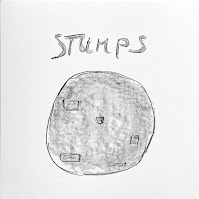As expected, the death of Cecil Taylor initiated a heightened interest in wrapping up his body of work with recordings that weren't released during his lifetime. Rather than being of interest solely to completists, they also provide insight into aspects of his music that were previously unavailable. One group that was oddly excluded from his official recordings, although not YouTube footage, was a quintet which sporadically performed in Europe from October 31, 1997 through May 15, 1999. The quintet, building upon the relationships begun in the 1988 FMP Berlin Taylor residency with cellist Tristan Honsinger and drummer Paul Lovens (whose reticence to play with Taylor was noted here), was supplemented by soprano saxophonist Harri Sjöström, who had performed off and on with Taylor since 1990, and bassist Teppo Hauta-Aho added specifically for this group. An October 31, 1998 performance at the Tampere Jazz Happening was recorded by the Finnish Broadcasting Company where the tape apparently was set aside until the recent uptick of interest brought it to someone's attention.
The performance of “Desperados” - a free improvisation composed by the quintet (oddly divided into two parts in the digital version despite there being no obvious point of demarcation in the stream of sound) was a piece repeated elsewhere in other European settings. It was pointed out in the liners that Taylor enjoyed this group as a collective effort to the point of referring to it as such. Sjöström had wanted to play with him for a long time and appeared in other groupings such as a quartet with Jackson Krall and Dominic Duval who had two live recordings from the Iridium in NYC on Cadence Jazz Records and who I saw play at a Knitting Factory festival in the late nineties. Harri’s playing fits in well, darting in and out of Taylor's ideas with distinctive lines and is surely the saxophonist with the longest musical tenure with Cecil other than Jimmy Lyons. The beginning of the composition begins with ritual chanting but Cecil is joined in this by at least Honsinger, no stranger at vocalizing on his own recordings, and Sjöström. The piece takes its time building momentum, with the bass and cello being struck with soft mallets on the body and strings as Lovens and others add subtle percussion figures from things shaken or struck before the string instruments become plucked and bowed. Cecil and Harri enter briefly together to complete the participants. Taylor is still the eye of the hurricane but he's quite comfortable backing off to let others be featured at times only to subsequently return assertively. Lovens is clearly over his initial trepidation of playing with Taylor and joins the ranks of superb percussionists interacting well with the pianist with his unique approach, although the micing of the cymbals sometimes drowns out the strings during some of the more bombastic passages. But for most of the performance Lovens employs more delicate cymbal figures, not dissimilar to the Oxley approach while still being distinctly different, including using the bass drum pedal much more emphatically at times. Hauta-Aho and Honsinger add a dueling string presence lacking in Taylor’s small groups since the late 70s Unit with violinist Ramsey Ameen and bassist Sirone. The interplay among all the subgroups is never less than interesting as Taylor emphasizes the importance of having distinctly individual approaches as being key to group success. The title of the recording was given by Steve Lacy enthusiastically appearing backstage spontaneously and framing the performance appropriately.
Although there's a certain peril in not knowing what will unaccountably be uncovered in the future (I just received a Bandcamp notification of a 1990 live recording by the Legba Crossing group), this should close the book on Cecil's recorded work in terms of discovering working groups existing more than a year based on sessionographies. This recording does more than just fill in a previous vacuum; it adds a new chapter. Listeners interested in learning about the full scope of his music are advised to partake of this.

















0 comments:
Post a Comment